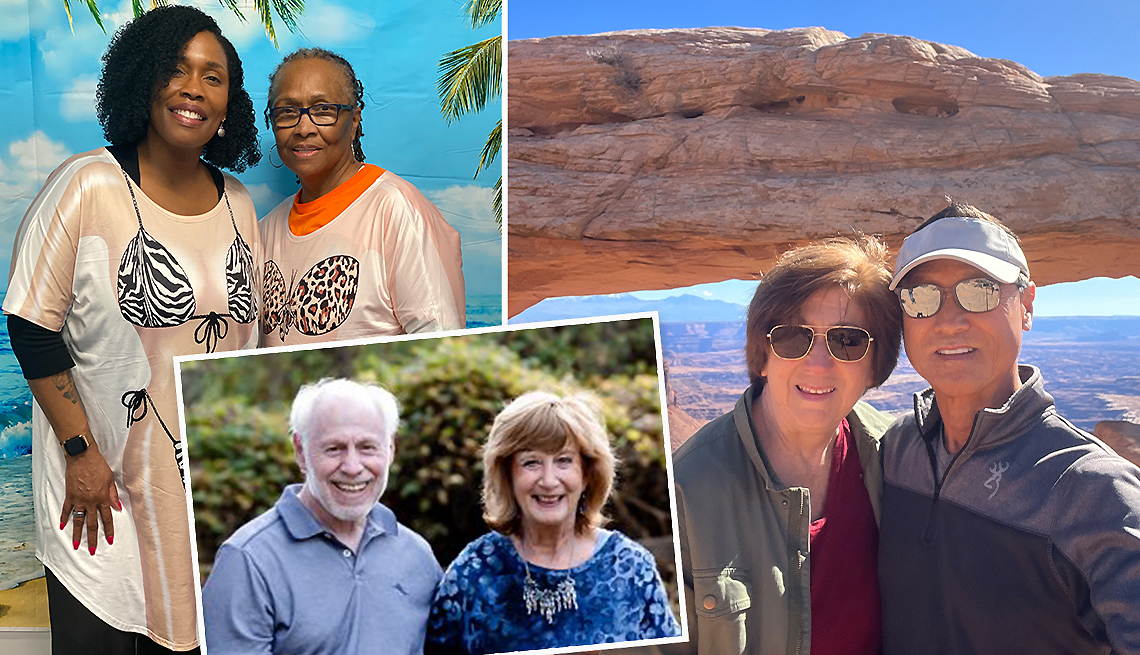
How to be a caregiver for someone who has parkinson’s disease
- Select a language for the TTS:
- UK English Female
- UK English Male
- US English Female
- US English Male
- Australian Female
- Australian Male
- Language selected: (auto detect) - EN
Play all audios:

EVERY PARKINSON’S JOURNEY IS DIFFERENT “Parkinson’s, by its nature, changes over time,” Dolhun says. But how it changes and at what speed varies widely, she says. That means the roles of
care partners vary and change as well. Some newly diagnosed people need little or no day-to-day help, Janicke says. Others “have been struggling for years,” and need a lot of help, she says.
“On the whole, Parkinson’s is slow moving,” she says. Someone working and living independently might keep doing that for a while. Doctors don’t have a “crystal ball” to tell new patients
and their care partners what to expect, Dolhun says. But after a couple of years, she says, doctors often have a better sense of someone’s likely path. The Rafaloffs say they are grateful
that Gary’s symptoms have progressed slowly. His sleep problems and balance have worsened, and his speech and walking have slowed, but Bobbi says, “Gary's cognitive abilities have just
sharpened somehow.” Mental decline “was my greatest fear when he was diagnosed,” she says. Tonia Smith, 50, a Cincinnati health educator and advocate, says her mom, Joanne Reeves, 70, is
still living safely on her own, five years after a tremor in one hand led to her Parkinson’s diagnosis. She says her mom does need more help with things like sorting medications and
sometimes freezes up when she moves. Smith says she calls Reeves every day to make sure she’s OK. Tonia Smith, 50, and her mom Joanne Reeves, 70, of Cincinnati, at a recent party. Courtesy
Tonia Smith GET SUPPORT AS A PARKINSON’S CAREGIVER It’s important to build a knowledgeable care team, Dolhun and Janicke say. The doctors who know the most about Parkinson’s are neurologists
with extra training called movement disorder specialists. They are not in every community, but it can be worth traveling to see them, the experts say. A directory of the specialists is at
the website of International Parkinson and Movement Disorder Society. Even if your loved one doesn’t need them yet, it’s also a good idea to learn about the nearest physical therapists,
occupational therapists and speech therapists trained in Parkinson’s, Janicke says. She also urges families to learn about palliative care, which focuses on quality of life at any stage of
the disease. Palliative professionals might address symptoms such as constipation and pain and provide mental health support to patients and care partners, she says. Your loved one might
also benefit from a Parkinson’s exercise class, she says. Studies show exercise can slow Parkinson’s progression, ease symptoms and lower stress. And, of course, care partners are key
members of the team. If you can, you should go to doctors’ appointments with your loved one, Janicke says, as an extra pair of ears and as someone who can share crucial information. Gil Kim,
66, says he and his wife Gina, 64, built a “great support system” in Atlanta after she was diagnosed 12 years ago. She had a movement disorder specialist, a good support group and
specialized boxing, tai chi and pole-walking classes. When they moved to Madison, Mississippi, to be closer to grandchildren, he says, they found almost none of that — so they reinvented it.
He and Gina now host a monthly support group with up to 60 people, he says, and have built a Parkinson’s boxing class at a local church into a larger program. Still, he says, they now must
travel more than 100 miles to see a movement disorder specialist in Alabama. He says he realizes that’s not something everyone can do. Gil Kim, 66, shown with his wife Gina, 64, who has
Parkinson's, during a trip to Utah. Courtesy Gil Kim CARE PARTNERS MAY WALK A FINE LINE How much help should you offer your loved one with Parkinson’s? How much of your own research
should you share with them? Who can you tell about the diagnosis? Caregivers and patients may not always agree on such things, Dolhun and Janicke say. Care partners must often walk a fine
line between what they want to do and what their loved ones want. Honest conversations are best, Dolhun says. “Ask the person, ‘How can I be most helpful _now_?’ ” You may hear, for
example, that the person with Parkinson’s doesn’t want to know every detail of your research but would appreciate hearing what’s essential.
